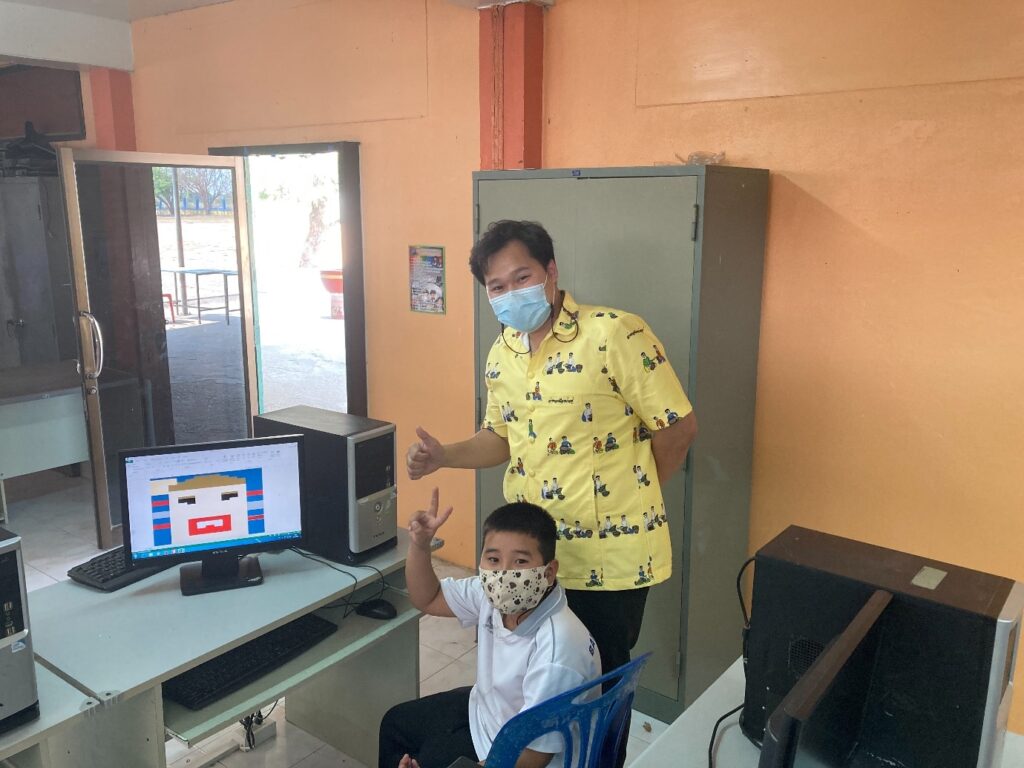

Amid socioeconomic change and developing technology, knowledge and soft skills have become more critical than ever. The old “show-and-tell” teaching is considered insufficient and no longer practical in the evolving 21st-century era. Especially as COVID-19 has drastically widened the gap between rich and poor, it pushes many more students with limited access to technology into learning loss. Now they face an urgen need to learn and develop 21st century skills.
To support education in Thailand, Kenan Foundation Asia partnered with Sumitomo Corporation Thailand Ltd. (SCTL) to conduct the “100 Seed: Light Up” project. With sustainable development goals towards education, Kenan facilitated a teacher professional development program in secondary schools using the Active Math module to foster participatory learning in math class. Math activities have bridged everyday problems to abstract concepts, which helps students gain knowledge and understanding systematically. 100 Seed: Light Up project also includes a session on the importance of math and 21st century skills in contemporary careers and Professional Learning Community accompanied by mentorship sessions, to ensure sustainable educational development.
Saharat Puautree, a teacher from Ban Nong Tam School, Ang Thong province, is one of the math teachers who participated in the 100 Seed: Light Up project this year. He shared with us, “Math merges with almost every subject that requires numbers and effective calculation to find the right solutions. I would say that math in secondary school is important as a fundamental knowledge itself, and it allows students to advance their potential to achieve higher education or career paths in the future.”
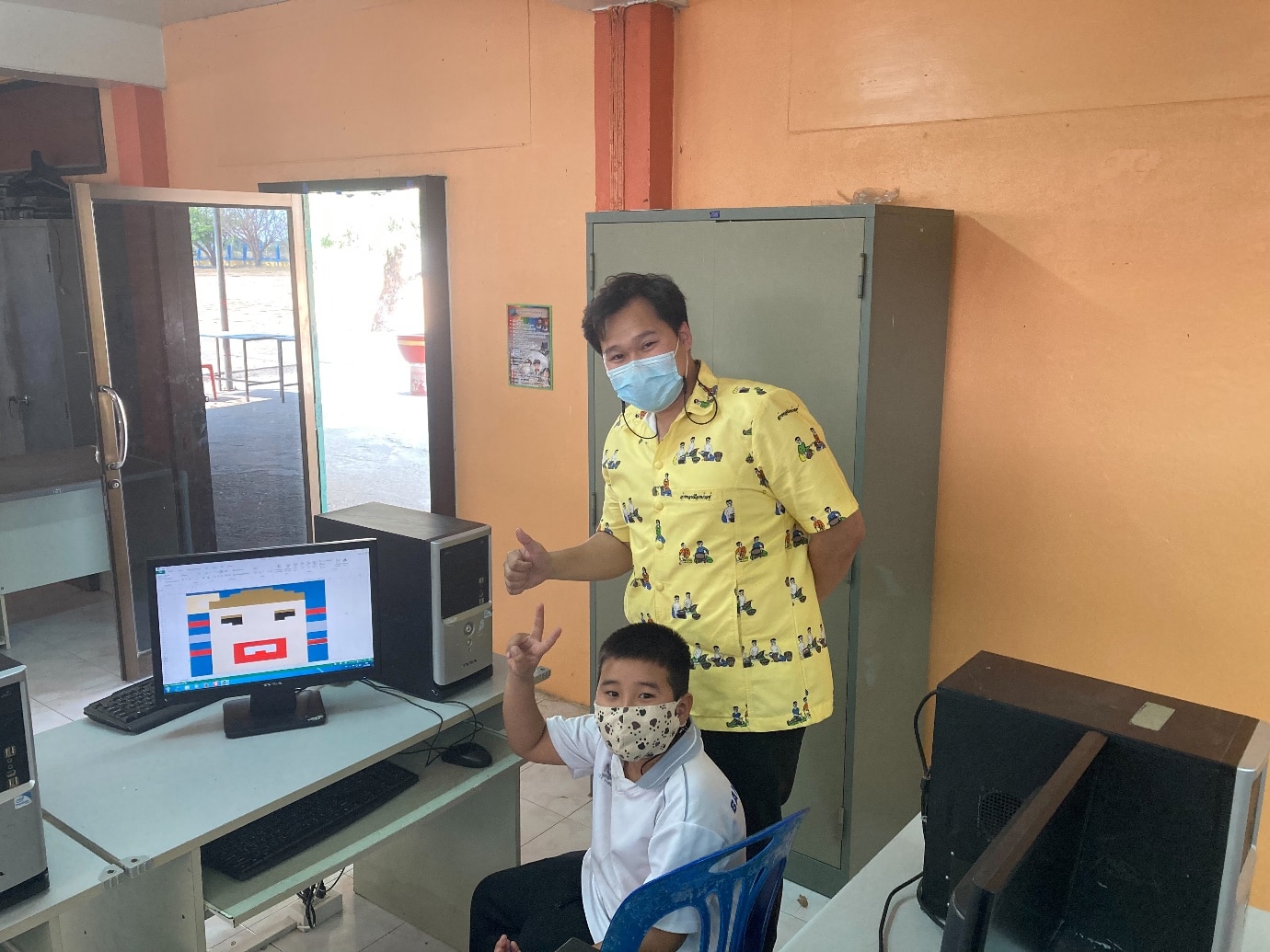
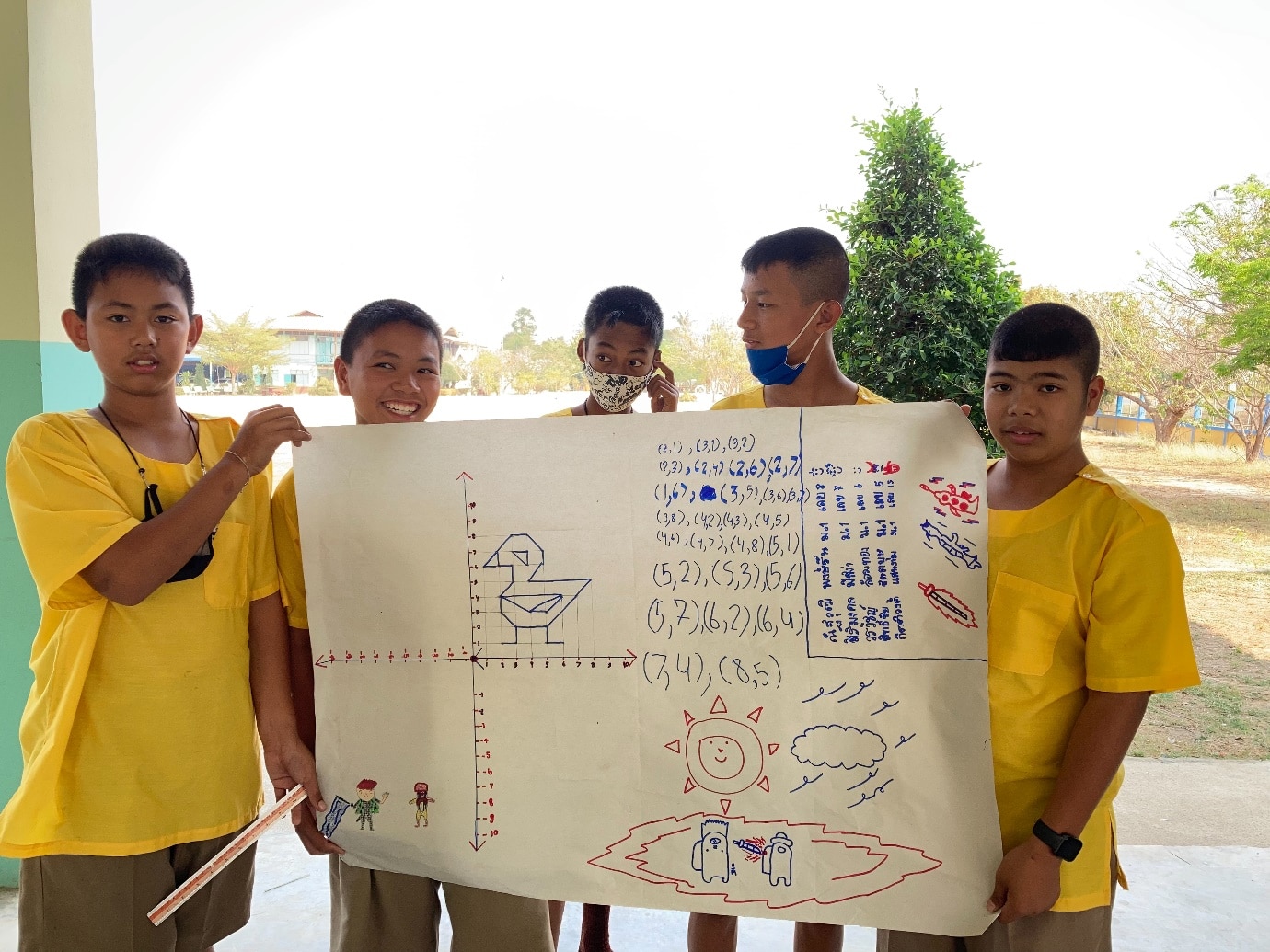
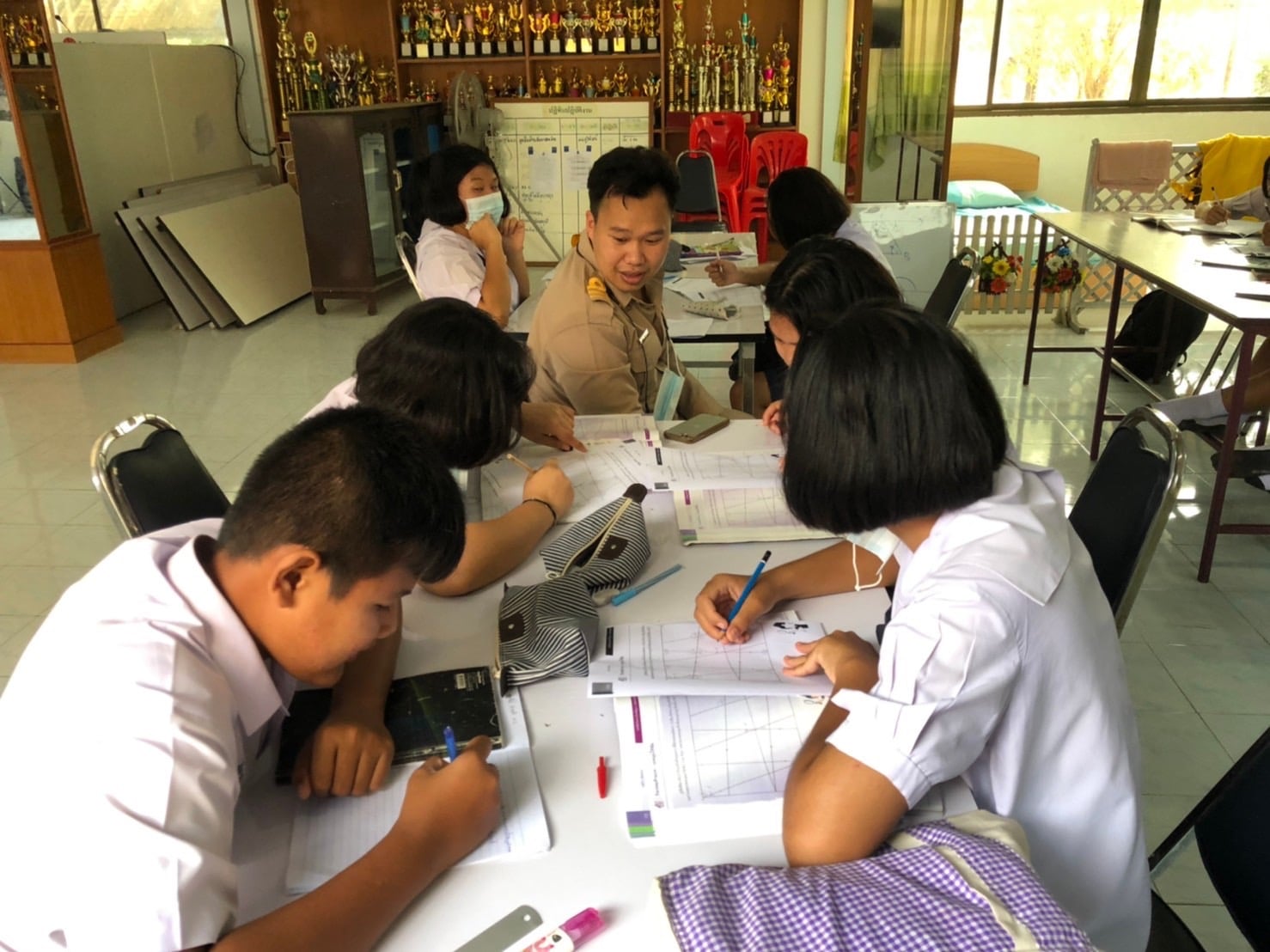
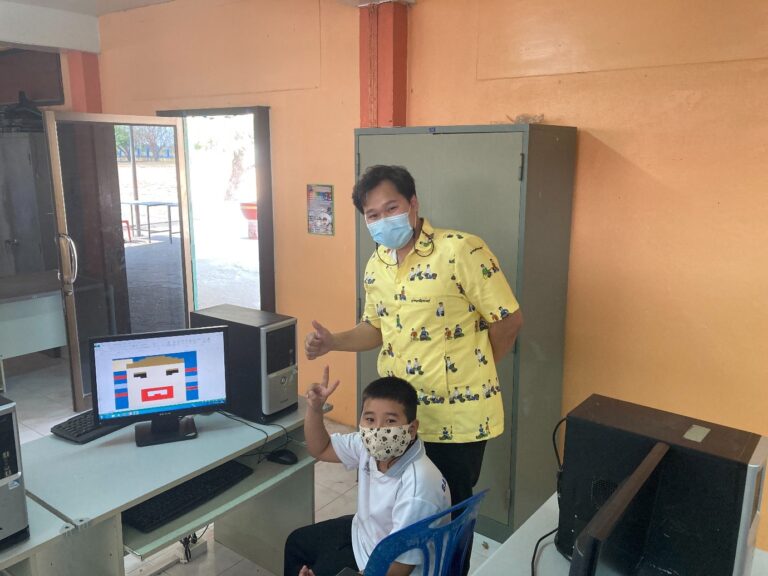
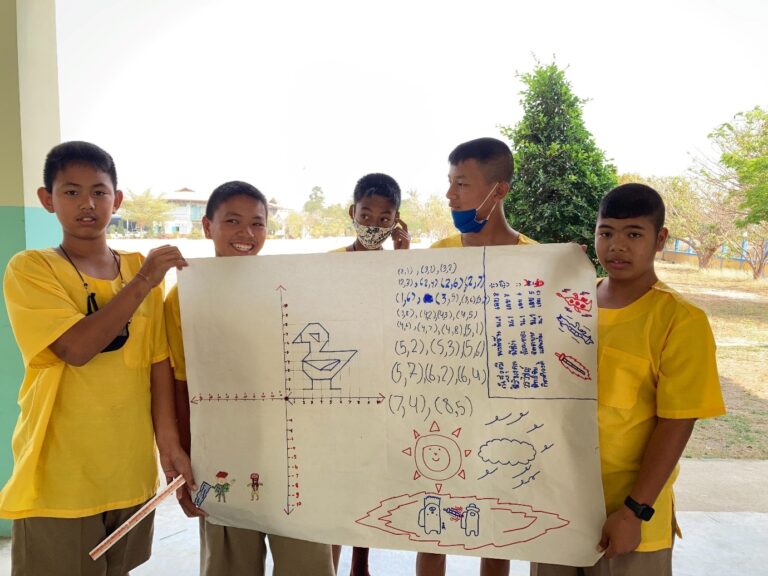
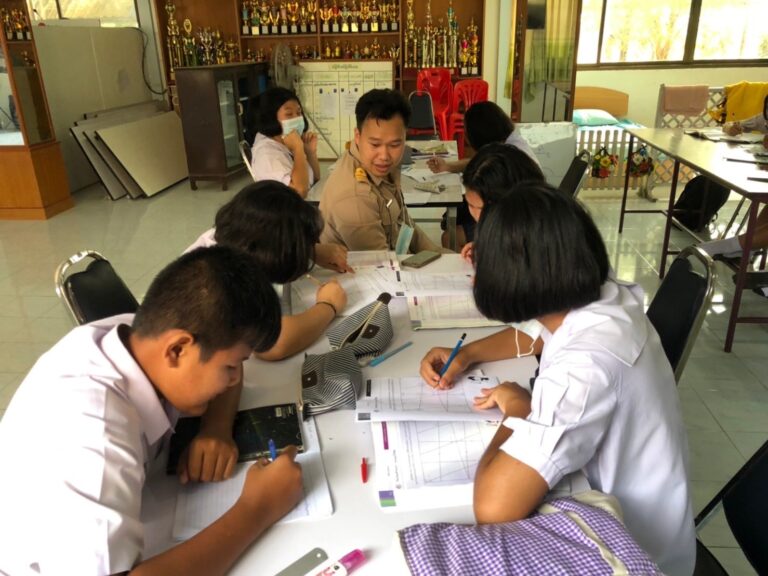
Challenges in teaching math
Saharat said, “Math at the secondary school level is quite complex as it contains more abstract concepts than the previous level. Teachers need to show their students concrete steps through teaching materials first. Then, helping them grasp the complexities by gradually leveling it up to abstract thinking. The common challenges are that some teachers might not be able to optimize the existing materials or technologies to enable students to grasp the abstract concept. The struggle to come up with a creative approach to make students more active in class is also a common issue.”
“Despite the many teacher training provided nowadays, professional development opportunities in mathematics are still lacking. Moreover, most of those math training programs usually have limited seats, and some are not of the quality that we are looking for.”
Saharat also expressed his experience during COVID-19 over these past two years, “not only limited equipment and technology access at home, but we also got lost in assessing students’ understanding. They might tell you that they understand the topic, but we cannot be sure if they truly do. Therefore, I need to schedule regular follow-up sessions, using worksheets or breakout activities to make sure my students can apply what they have learned.”
Heading to the Active Math classroom
After participating in our project and interacting with corporate volunteers from Sumitomo Corporation Volunteers, Saharat was impressed, “first things first; I was impressed with the attention and knowledge the master teachers and facilitators showed. Second would be the key takeaways and new teaching pedagogies from the training that can be applied in my classes. Training provided teachers with teaching techniques to help students summarize what they learned and have been asked in class. It also encourages students to quickly review their past lesson before jumping to the next level.”
“Back then, teachers allowed only right or wrong answers. But now, when the boundaries of learning have been removed, students can freely come up with their own answers. I can see lots of fresh ideas coming in, and the classroom environment becomes more and more engaging. Meanwhile, teachers can optimize critical thinking skills to meet the learning objective of each lesson.” Saharat exchanged his ideas and experiences with other math teachers and master teachers during the PLC mentoring sessions, which significantly benefited his classes.
A new perspective of teaching through Active Math
Saharat shared his experience after joining Kenan’s Active Math session, “traditional math usually aims for rote-memorization and exams, but Active Math focuses on hands-on learning. Teachers can observe students developing essential skills for their daily life. By emphasizing the importance of communication and critical thinking skills, even though math is complex, students will be able to express and apply the lesson in class with the real world.”
He went on to say, “unfortunately, due to COVID-19, we have not had a chance to implement the full module of Active Math within this semester. However, I have applied this new system in my online classes, which positively impacted how students participated. They discuss and become more open to exploring more than before. What impressed me the most is that my students can better solve problems and think critically, which means they have achieved the ultimate learning goal.”
Saharat said, “with Active Math, teaching is no longer about speaking or seeking multiple techniques to pack tons of information into students’ memories. We are now like coaches who guide and support students while building their knowledge through activities. Therefore, the most important skill teachers need to gain is being open to various kinds of students’ ideas.”
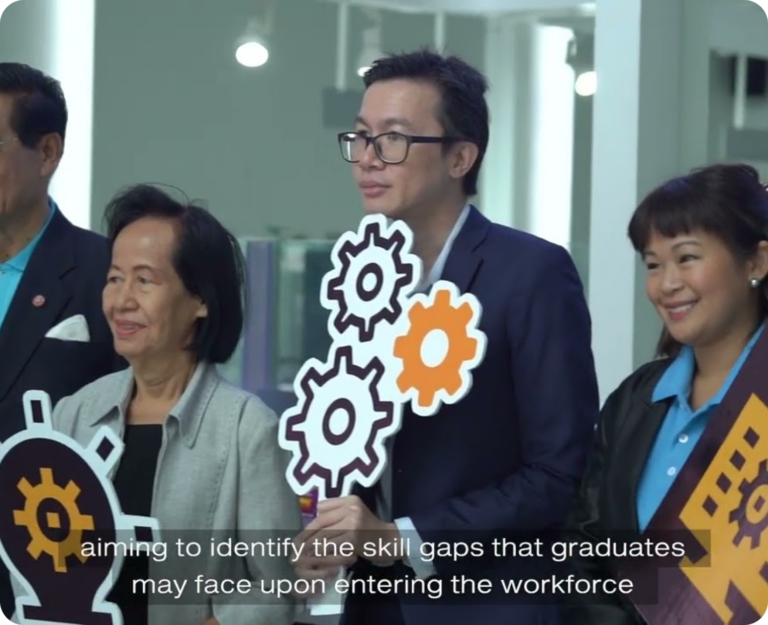
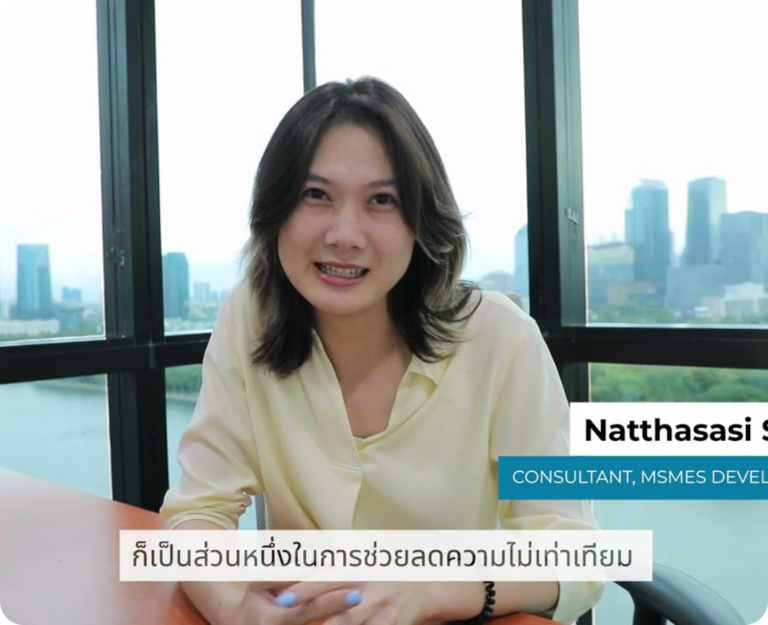
Kenan Foundation Asia believes in a world where
vulnerable populations are empowered to succeed in
an inclusive society.
Thailand Charitable Organization Registration #350, under the Ministry of Finance US 501(c)3 Equivalency Status